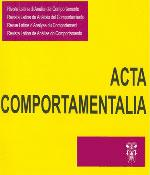Contribuições do projeto de educação da sensibilidade de Abib ao planejamento cultural
DOI:
https://doi.org/10.32870/ac.v27i3.70623Palabras clave:
behavior analysis, intervention, culture, hedonism, valuesResumen
Concern about cultural issues is a topic of growing interest in Behavior Analysis. One of the authors of this theoretical field, Abib, in “Behavior and sensibility: Life, pleasure and ethics” [Comportamento e sensibilidade: Vida, prazer e ética] presents an analysis of cultural ills under the sensibility focus. The author points out that the evolution of the behavior was accompanied by an evolution of sensitivity and of consequences, but the evolution of sensitivity did not follow the evolution of cultural practices. Abib differentiates two types of sensitivity: vital sensitivity, sensitivity to natural consequences and related to survival, reproduction and preservation of life; and mental sensitivity, sensitivity to reinforcing consequences, pleasure and pain relief, with no survival value. Cultural practices based on mental sensitivity, involving the creation of reinforcements, usually non-contingent, would be at the root of human problems. To solve this, Abib suggests a harmonization of the mental and vital sensitivity, through the education of the sensibility. The author’s interpretation of the relationship between sensitivity and culture is a relevant topic for studies in cultural outlines. Therefore, the objective of this study was to systematize the sensitivity education project, showing its importance for cultural planning. For this, Abib’s book was analyzed through the Text Interpretation Procedure. Auxiliary texts that could contribute to the understanding of concepts and theories presented by Abib were consulted. The theoretical-philosophical bases of Abib’s project were discussed through the analysis of the relationship between behavior, consequences and sensitivity. Stands out the election of organicism as a model of relational explanation and the use of the concept of hedonism as a definition for the concept of reinforcement. Then, the systematization of principles and strategies of the sensitivity education project was carried out. The principles presented emphasize the use of immediate positive reinforcement, related to behaviors that have survival value for cultures or that are not harmful to it, and the abandonment of the use of punishment. The strategies presented are sentiment education, ethics education, education for freedom and the formation of self-control and the creative individual. Some potentialities and limits of this project are discussed. As a potentiality, the recovery of the study of sensitivity in the explanation of human behavior and problems and, as limits, the defense of abandonment of punishment, stand out. It is concluded that the Abib project advances by focusing on the evolution of sensitivity and placing sensitivity education as the central object of a human development project and as a new objective for cultural interventions.Descargas
Los datos de descargas todavía no están disponibles.
Descargas
Publicado
3 de septiembre de 2019
Cómo citar
Bogo, A. C., & Muchon de Melo, C. (2019). Contribuições do projeto de educação da sensibilidade de Abib ao planejamento cultural. Acta Comportamentalia, 27(3). https://doi.org/10.32870/ac.v27i3.70623
Número
Sección
Artículos
Licencia

<a rel="license" href="http://creativecommons.org/licenses/by-nc-sa/4.0/"><img alt="Licencia de Creative Commons" style="border-width:0" src="https://i.creativecommons.org/l/by-nc-sa/4.0/88x31.png" /></a><br />Este obra está bajo una <a rel="license" href="http://creativecommons.org/licenses/by-nc-sa/4.0/">licencia de Creative Commons Reconocimiento-NoComercial-CompartirIgual 4.0 Internacional</a>.






